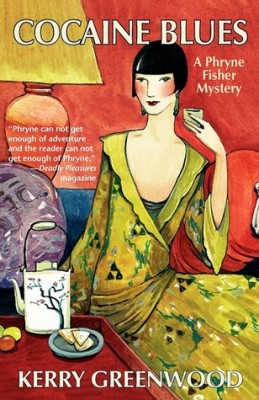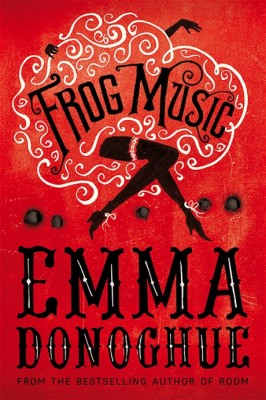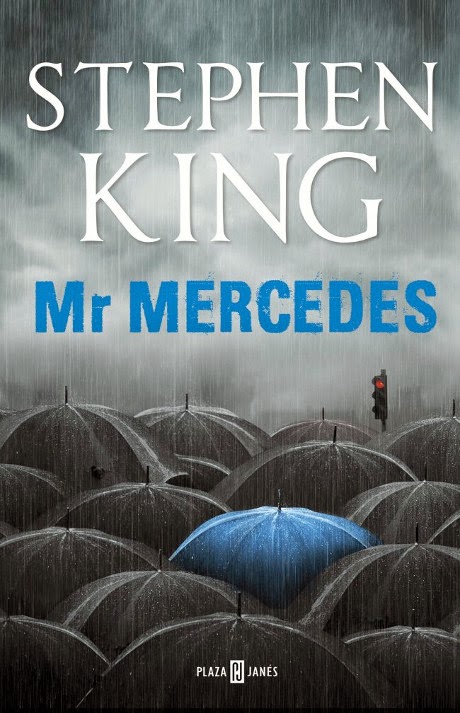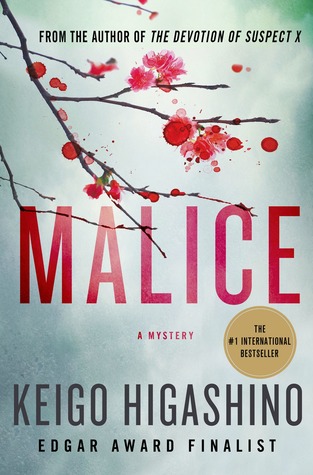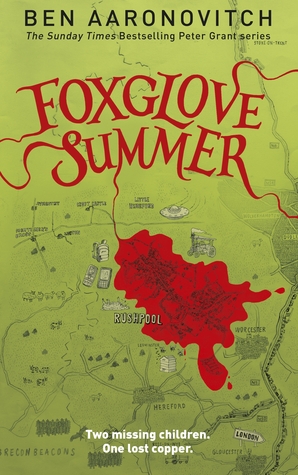It’s been pretty quiet on the Book Report front for a while now, and there are several good reasons for that, namely: (a) a re-read of The Lord of the Rings while on holiday in New Zealand because appropriate; followed by (b) a re-read of some Agatha Christie faves, also while on holidays, because it’s holidays and I don’t want to read anything depressing and/or that I don’t already know the ending of; followed by (c) the following.
Continue reading Cocaine Blues (et al)
Ever since I was a teenager, and realised I had a choice about it, I’ve tended to avoid reading the blurbs of books before I read the books themselves. Possibly because so many copywriters are failed novelists, I’ve often found that blurbs are far too eager to try to dictate to me what the subtext of a book is, or explain its thematic intentions. I’d rather dive into a novel without preconceptions about what I should expect to find there.
Continue reading Frog Music
Mr King giveth, and Mr King taketh away. For someone so prolific, I guess it should come as no surprise that some of the approx. 157 books he releases every year will be duds, but it’s still disappointing when you know all the good he’s capable of when he puts his mind to it. Continue reading Mr Mercedes
Things aren’t going well in Motor City. Unemployment is rife. Foreclosures dot the suburbs. Police won’t stop shooting black kids. And on top of everything, a murderer has started creating bizarre human-animal hybrid corpses.
Continue reading Broken Monsters
It’s hard to talk meaningfully about this book without spoilers. Let’s see…the first chapter deals with the discovery of the murdered body of a famous author, and is narrated by his childhood friend, one of the people who discovers the body. Soon after, someone confesses to the murder, but the detective in charge of the case thinks there’s more to it, and decides to keep digging. Continue reading Malice
There is a certain mythology surrounding William Gibson. According to legend, Neuromancer, his debut novel and the one in which he popularised the word “cyberspace” (a word he had previously coined), was written entirely on a typewriter. Later, when he bought his first Apple Macintosh, rumour has it that he was so alarmed by the whirring sound of the CPU that he called technical support and reported it broken. Half a lifetime ago, when I was studying the theory of information systems in first year uni, I first heard the idea (which will be familiar to sci-fi nerds of all stripes) that his greatest weakness was also the key to his strength: because he wasn’t bound by “facts” or “knowledge” about what computers could actually do, he was free to imagine what they might one day be capable of doing. Continue reading The Peripheral
I don’t know whether many of us will be familiar with the central conceit of this novel: it was a bestseller, but in the early 90s when I wasn’t paying attention to trends in literature. I knew of it somehow, and was saving it because it’s pretty much all my guilty-pleasure genres in one: historical fiction detective story, set in parallel universe. In short, it’s an alternative 1964 in which Germany has won WWII and most of Europe is under the rule of Adolf Hitler, who is about to celebrate his 75th birthday.
Continue reading Fatherland
If you’re not already aware, this purports to be an Hercule Poirot novel written by someone other than Agatha Christie, and ehhhhhhh I don’t know. It always strikes me as a weird choice to make. I mean, sure, you’ll sell books to idiots like me who can’t help themselves, but you know you’re going to be compared to someone much more famous and probably more beloved, and unless you really nail it, it’s always going to be judged a failure. Just come up with your own campy foreign eccentric and have your work assessed on its own merits. Continue reading The Monogram Murders
Look, I’ve tried to like PD James. I’ve tried really hard. I’ve read at least four or five of her other books, including a range of older and more recent, Adam Dalgliesh and Cordelia whatshername. And I just don’t get it. As detective stories I find the solutions arbitrary; as novels, I find them boring and badly-developed. BUT. I recently watched the BBC miniseries adaptation of this book, and really liked it, and since the first episode aired the day after the author died, I thought it was only respectful to give her one last chance.
Continue reading Death Comes to Pemberley
It’s nice how Kari and I can remain friends despite having exact opposite responses to the words “Cockney wizard detective”.
This is the fifth in a series of books that commenced a few years back with Rivers of London. There, the protagonist, PC Peter Grant, has just finished his training when he is assigned to the branch of the London Metropolitan Police Force that deals with supernatural crimes, and apprenticed to Detective Inspector Thomas Nightingale in order to be trained as a wizard. Continue reading Foxglove Summer
